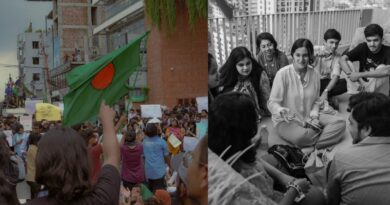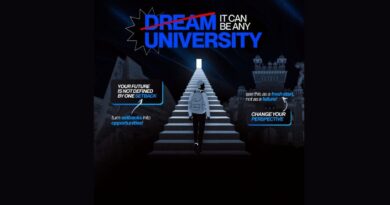July in memoriam: reemergence of student politics
July was the pinnacle moment for our generation, and the uprising presented us with invaluable opportunities: a renewed hope for an entire generation determined to repair our nation’s deeply flawed systems.
It will be a year since the authoritarian regime was toppled. Disappointingly, the revolutionary spirit seems to be lost in echoes of the same-old-system, and it can be seen in the evolution of student politics since. One key lesson from the quota reform movement was: party-affiliated student politics are fundamentally incapable of genuinely serving the interests of students or academic institutions. Alarmingly, this problematic culture of student politics is now resurging.
Khalid Ibn Ali Razin (Senior, ESS) feels, “Student politics may have a place in private universities, but they must be student-oriented instead of serving the purpose of the mainstream parties.” He raises the point that these platforms need to break out of their traditional ways to ensure a space for students to raise their voices.
Initially, after the uprising, a list of self-declared student coordinators from BracU revealed themselves on Facebook. The list raised concerns, and many saw it as an attempt to undermine the “apolitical” will of general student consensus. The list was promptly rescinded due to the backlash. In February, a new political student platform emerged with members from that list in the central committee. These self-appointed student “leaders” claim to represent us, yet their actions suggest they are primarily serving their own political ambitions. Representation requires openness and a willingness to stand before their peers. If they truly speak on our behalf, they must also be accountable to us.
Similarly eye-catching was the largest active political party of Bangladesh’s student wing unveiling its committee in BracU, with some of the names raising questions of whether they are even current students. Not to mention, these activities are completely violating the student code of conduct of BracU.
Anwoy Agradip Sarker (Senior, ESS) shares, “These committees do not serve any purpose to the actual functioning between the many stakeholders of an institution.” He states that committees such as this rather hamper the democratic process.
Post-July, we were driven by optimism. Unfortunately, we are now being dragged back into the same labyrinth we wished to escape. July offered us a rare opportunity to transform our nation fundamentally. Yet, in a cruel twist of irony, we find ourselves sinking even deeper into the very mire that students courageously poured their blood trying to cleanse.



